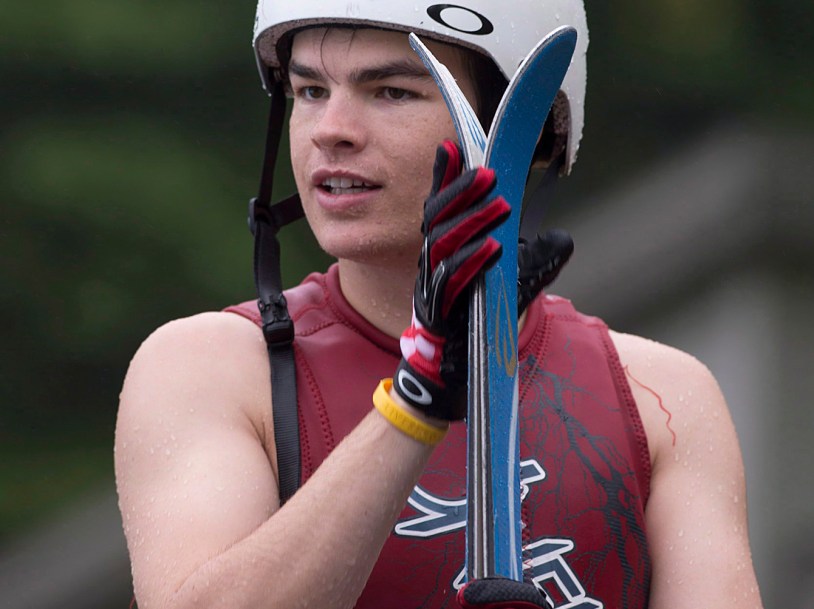Is Quebec culture the secret to Olympic success?
“No sooner does one athlete shine that our Latin side comes to the fore.”
So says Olympic mogul skiing champion and 2014 Canadian Olympic Team Assistant Chef de Mission Jean-Luc Brassard in explaining how the ‘Latin roots’ of Quebec culture – or ‘hot blood’ – has such an impact on why so many Quebec athletes consistently rise to the top in specific sports.
“At our core, our roots, we are more inclined toward a culture of enjoyment. This may explain why we appeal to a lot of young freestyle skiers and short track speed skaters.”
Many of the finest freestyle skiers, divers, speed skaters, judo athletes and hockey players do, indeed, come from Quebec – and are developing generations of champions.
During the 40th edition of the Gala Sports Québec in May, Brassard emphasized that the perpetual success of French Canadian athletes in these sports is contagious. Moreover, success is shared in a specific and emotional way that plays a big role in shaping this province’s character.
“We run on emotion,” he said. “When we see someone perform, it picks us up, it energizes us … I still recall when Sylvie Bernier and Gaétan Boucher won, or how incredible Pierre Harvey performed. These are the very people who sparked my interest in Olympism.”
This interest turned into an Olympic gold medal at the Lillehammer Winter Games, two-time world champion status, Flag Bearer honours and, perhaps most importantly, a deep rooted passion for helping Canada’s athletes achieve beyond their goals.
“I am a firm believer in emulation,” said Brassard. “How many Quebec-born goalies made a name for themselves on the heels of the success enjoyed by Patrick Roy? Everybody, in each and every country, is gung ho about seeing their athletes perform, but for (Quebeckers), with our little Latin side, it’s hyped up ten-fold.”
If hyped-up emulation is the ingredient to a secret recipe for success, one only has to look as far Deux-Montagnes – the hometown of Mikaël Kingsbury, where he has proven something good is cooking in Quebec sport development.
Kingsbury turned himself into a world champion and two-time overall world cup champion in moguls … all before the age of 21. And he did it looking up to the very people who would go on to (and continue to) help define the Canadian Olympic Movement by their examples.
“At 14 years of age, (my friends and I) would do manoeuvers that guys in the World Cup would perform,” explained the winner of the 2012-13 International Male Athlete of the Year for Quebec.
Hot-blooded indeed.
Now young freestylers across the globe are emulating Kingsbury (never mind just French Canadian youth) … before he even competes at his first Olympic Games.
“I have always had positive role models,” explained the winner of the 2012-13 International Male Athlete of the Year. “We had the Quebec Air Force team of Jean-Luc Brassard, Dominick Gauthier, Stéphane Rochon, Pierre-Alexandre Rousseau and Alexandre Bilodeau. You definitely want to be a part of that lineage.”
PASSING DOWN THE PASSION
Like Brassard, Gauthier continued his important contribution to the Canadian Olympic Movement, but as a coach to Olympic champs Jennifer Heil and Bilodeau.
He suggests this kind of long-term thinking combined with a reactive passion to success is a notion in Quebec that spreads beyond just the Freestyle Skiing community and is in fact woven into the culture.
“In (high-energy action) sports, we have had one or two champions who went on to become superstars in their own right,” said Gauthier. “There was Jean-Luc Brassard and Nathalie Lambert to name a couple. These champions inspired many youth to take up the same sport … At our core, our roots, we are more inclined toward a culture of enjoyment. This may explain why we appeal to a lot of young freestyle skiers and short-track speed skaters.
Robert Dubreuil, CEO of the Fédération de patinage de vitesse du Québec, concurs.
“Short track speed skating is a spectator event, and Quebeckers love action,” said the former Olympic speed skater.
“We have a bit of Latin blood in that respect. That’s part of the answer.”





